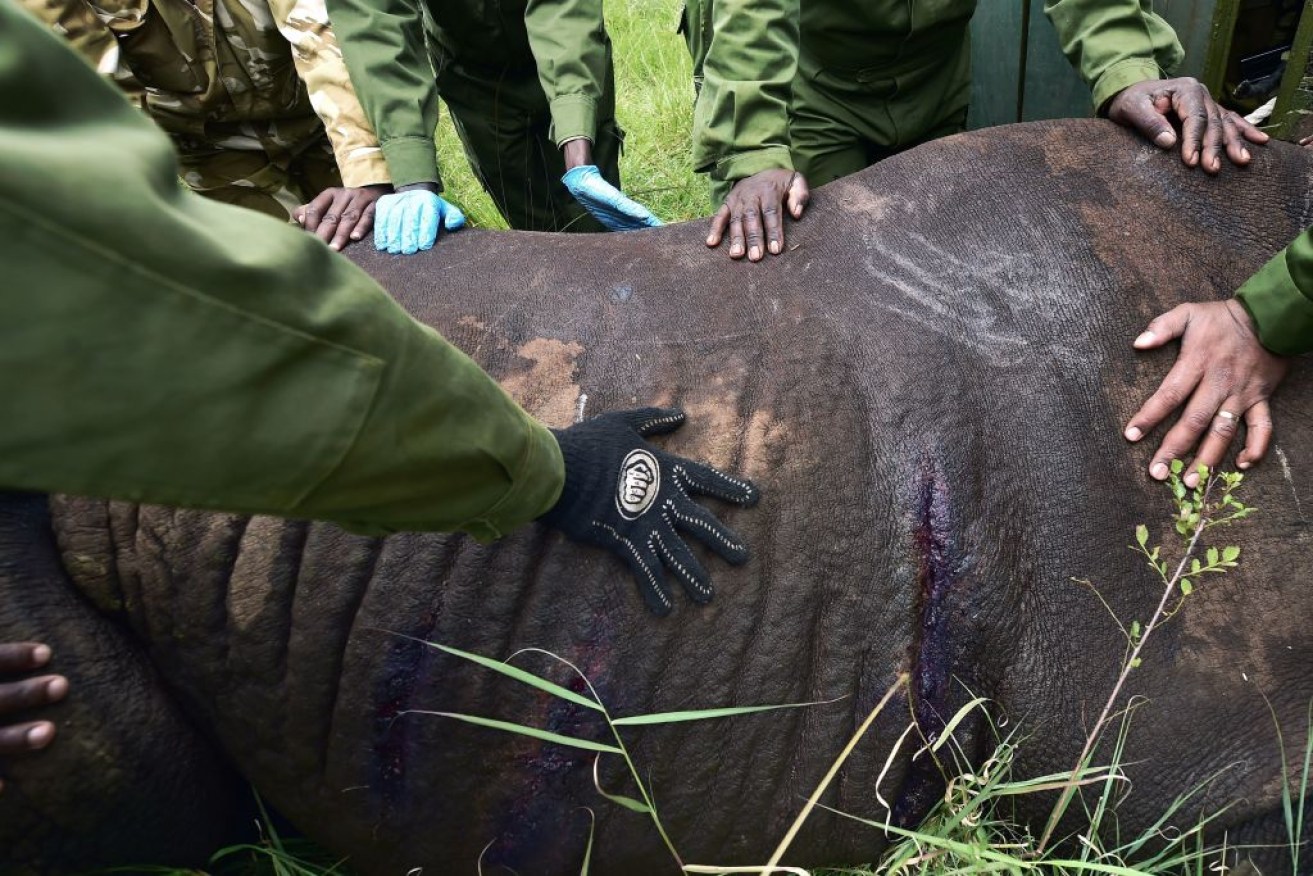Salt poisoning blamed for horrific deaths of eight endangered black rhinos


Kenya Wildlife Services (KWS) translocation team members handled the move of the 11 Rhinos on June 26. Photo: Getty
An immediate investigation is underway after eight endangered black rhinoceros were found dead at a sanctuary in southern Kenya.
The country’s Ministry of Tourism and Wildlife said the “unprecedented mortality rate” was due to the animals drinking water containing high levels of salt after arriving in their new home.
The animals were part of a delicate relocation of 11 endangered rhinos, moved on June 26 from Nairobi and Lake Nakuru national parks to a new sanctuary in Tsavo East National Park.
Kenya Wildlife Service (KWS) staff are under investigation and disciplinary action will be taken if “negligence or unprofessional misconduct” is found to have contributed to their deaths, according to the Ministry of Tourism’s Facebook page.
KWS and the Kenyan branch of the World Wildlife Fund (WWF) handled the move.

A female black rhinoceros was one of three moved on June 26 as part of a program to repopulate habitat around the country decimated by poaching and harsh climatic changes. Photo: Getty
Cabinet Secretary for Tourism and Wildlife Najib Balala directed the KWS on Friday to “immediately suspend the ongoing translocation of black rhinos”.
“Preliminary investigations by KWS veterinary teams attribute the deaths to salt poisoning as a result of taking water of high salinity on arrival in the new environment,” a statement read on their Facebook page.
“These findings are consistent with cases of salt poisoning in other animal species, indicating a challenge in the translocated rhinos’ adaptation to the change from fresh water to saline water in the sanctuary.”
“The high salt levels lead to dehydration that triggers thirst mechanism, resulting in excess water intake of the saline water that further exacerbates the problem,” it read.
The country was keen to defend its low mortality rates of transporting rhinos between national parks. Between 2005 and 2017, 149 rhinos have been translocated with 8 deaths mortalities. And between July 2017 and February 2018, 74 rhinos have been sedated for “ear-notching and clinical intervention” with only one death.
WWF Kenya CEO Mohamed Awer said in a statement to CNN: “At a time when three rhinos are poached on average a day for their horns, any losses are particularly painful”.







